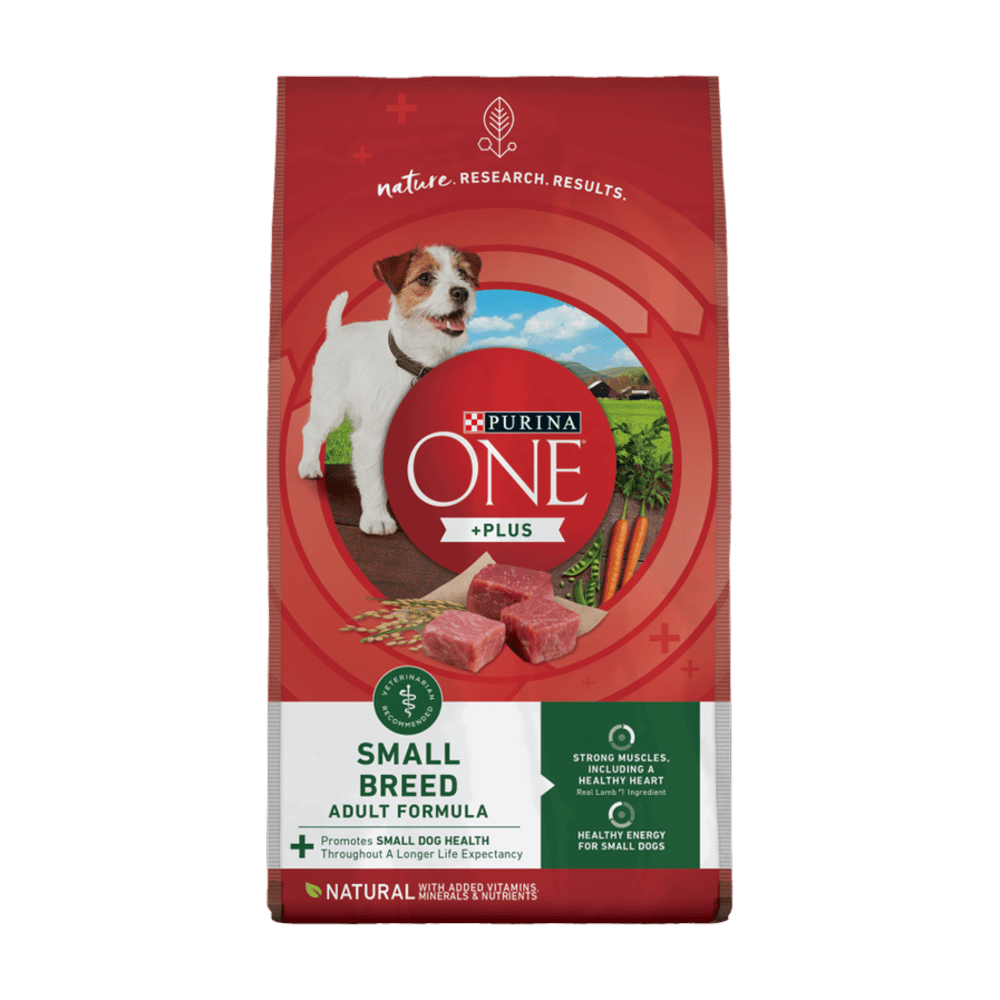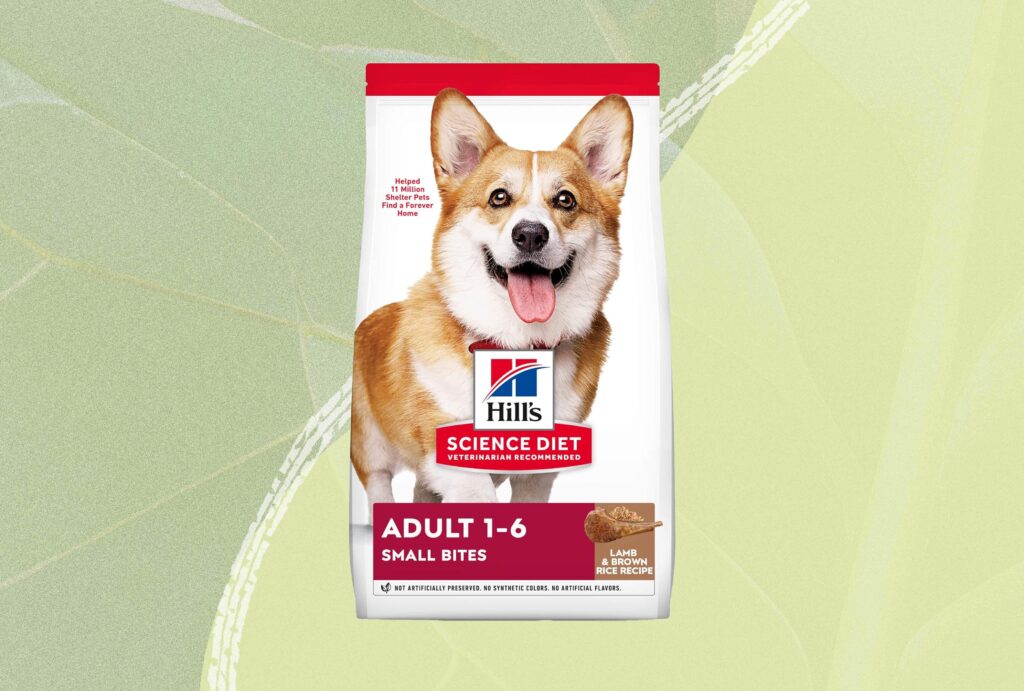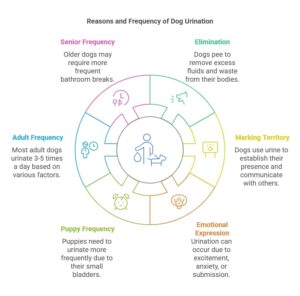Small breed dog food is specially formulated to meet the nutritional needs of smaller dogs. It typically contains higher protein and fat levels to support their energy requirements.
Small breed dogs, such as Chihuahuas, Pomeranians, and Dachshunds, have unique dietary needs. Their smaller mouths and faster metabolisms demand food tailored for their size. Choosing the right dog food ensures they receive essential nutrients for optimal health. High-quality ingredients contribute to better digestion and overall well-being.
Small breed dog food often features smaller kibble sizes for easier chewing. Look for options rich in protein and healthy fats to support energy levels. A balanced diet helps prevent obesity, dental issues, and other health concerns. Prioritizing your dog's dietary needs leads to a happier, healthier pet.

Table of Contents
ToggleNutritional Needs
Choosing the right food for small breed dogs is very important. These dogs have unique nutritional needs. Their diet should support their energy and health. Understanding what makes a good dog food can help owners make better choices.
Protein Requirements
Protein is a key part of a small dog’s diet. It helps build strong muscles and keeps them healthy. Small breed dogs need more protein than larger dogs. Here are some important points about protein:
- High-quality sources include chicken, beef, and fish.
- Look for foods with at least 20-30% protein content.
- Protein helps with energy levels and overall growth.
Choosing the right protein source is crucial. A balanced diet should include both animal and plant proteins. A table below shows some common protein sources and their benefits:
| Protein Source | Benefits |
|---|---|
| Chicken | High in protein, easy to digest |
| Beef | Rich in iron, supports muscle growth |
| Fish | Contains omega-3 fatty acids, good for skin |
Fat Content
Fat is another important part of a small dog's diet. It provides energy and helps absorb vitamins. Healthy fats are essential for a shiny coat and healthy skin. Here are some key points about fat:
- Look for foods with 8-15% fat content.
- Sources like fish oil and chicken fat are beneficial.
- Fat helps keep dogs feeling satisfied.
Too much fat can lead to obesity. Keep an eye on your dog's weight. Balance is key to a healthy diet.
Pros And Cons
Feeding small breed dogs specific food has its advantages and disadvantages. Understanding these can help owners decide better. Here are the pros:
- Specialized nutrition meets small dogs' needs.
- Helps maintain a healthy weight.
- Supports overall health and vitality.
On the other hand, there are some cons:
- High-quality food can be more expensive.
- Some dogs may be picky eaters.
- Not all brands provide balanced nutrition.
Understanding these pros and cons can help in making informed choices.
Types Of Food
Choosing the right food for small breed dogs is very important. These dogs have unique needs. Their food should support their energy and health. Two main types of food for small breeds are dry kibble and wet food. Each type has its benefits and drawbacks. Understanding these options helps you make the best choice for your furry friend.
Dry Kibble
Dry kibble is a popular choice for small breed dogs. It is easy to store and serve. Kibble helps clean teeth and reduce plaque. Many brands offer kibble made specifically for small breeds.
- Benefits of Dry Kibble:
- Cost-effective compared to wet food.
- Longer shelf life.
- Good for dental health.
- Available in various flavors.
Here’s a simple table showing some popular dry kibble options:
| Brand | Flavor | Protein Content |
|---|---|---|
| Brand A | Chicken | 28% |
| Brand B | Salmon | 26% |
| Brand C | Lamb | 30% |
Choosing a good dry kibble requires checking the ingredients. Look for high-quality protein sources. Avoid fillers like corn and soy.
Wet Food
Wet food is another great option for small breed dogs. It often has more moisture. This helps keep your dog hydrated. Many dogs find wet food very tasty. It can be a good choice for picky eaters.
- Benefits of Wet Food:
- Higher moisture content for hydration.
- Soft texture is easier to chew.
- More appealing to many dogs.
- Can be mixed with dry food for variety.
Here’s a simple table showing some popular wet food options:
| Brand | Flavor | Protein Content |
|---|---|---|
| Brand X | Beef | 32% |
| Brand Y | Turkey | 30% |
| Brand Z | Chicken & Rice | 28% |
Choosing wet food requires checking for balanced nutrition. Look for options that include vegetables and healthy fats. Always consult your vet for the best choices.
Ingredients To Look For
Choosing the right food for small breed dogs is important. These dogs have unique needs that require special attention. High-quality ingredients help support their health and happiness. Understanding what to look for can make a big difference.
High-quality Proteins
Proteins are vital for your dog's growth and energy. Small breed dogs need proteins that are easy to digest. Look for meats as the first ingredient. Here are some high-quality protein sources:
- Chicken
- Turkey
- Beef
- Fish
Plant-based proteins can also be beneficial. These include:
- Peas
- Lentils
- Chickpeas
Protein content is important. Check the label for the percentage of protein. Small breed dogs usually need around 18-30% protein in their diet. A good dog food brand will provide this. Here’s a quick comparison of protein sources:
| Protein Source | Protein Content (%) |
|---|---|
| Chicken | 25 |
| Beef | 26 |
| Fish | 28 |
| Peas | 21 |
Whole Grains
Whole grains are a great source of energy for small breed dogs. They help keep your dog full and satisfied. Look for grains that are unrefined and nutritious. Some good choices include:
- Brown rice
- Oats
- Barley
Whole grains also provide fiber. Fiber is important for digestion. It helps keep your dog’s tummy healthy. Here’s how these grains compare:
| Whole Grain | Fiber Content (%) |
|---|---|
| Brown Rice | 2.5 |
| Oats | 5.0 |
| Barley | 17.3 |
Always check the label for whole grains as the first ingredient. Avoid dog foods with too many fillers. Fillers offer little nutrition and can upset your dog's stomach.

Common Allergens
Choosing the right food for small breed dogs is very important. Many small dogs can have allergies. Understanding common allergens helps in selecting the best food. Grains and artificial additives are two major allergens. Knowing more about them can keep your dog healthy and happy.
Grains
Many dog foods contain grains. Some dogs are allergic to grains. The most common grains that cause allergies are:
- Wheat
- Corn
- Barley
- Rice
Symptoms of grain allergies can include:
- Itchy skin
- Red, inflamed skin
- Digestive issues
Many dog food brands offer grain-free options. These foods often include protein sources like:
| Protein Source | Example Food |
|---|---|
| Chicken | Chicken and Sweet Potato Formula |
| Fish | Salmon and Pea Recipe |
| Lamb | Lamb and Lentil Blend |
Choosing a grain-free diet may help with allergies. Always consult your vet before making changes.
Artificial Additives
Artificial additives are found in many dog foods. These can include colors, flavors, and preservatives. Some dogs may react poorly to these substances. Common artificial additives include:
- Propylene Glycol
- BHA (Butylated Hydroxyanisole)
- Artificial Colors
Signs of sensitivity to artificial additives may be:
- Vomiting
- Diarrhea
- Hyperactivity
Many pet owners choose natural dog foods. These foods avoid artificial ingredients. Look for labels that say:
- No artificial colors
- No artificial flavors
- No chemical preservatives
Natural ingredients can lead to better health for your dog. Always read labels carefully to ensure quality.
Feeding Guidelines
Small breed dogs have unique needs when it comes to food. Their small size means they require different feeding guidelines than larger breeds. Proper nutrition helps them grow strong and stay healthy. Understanding portion control and meal frequency is important for their well-being.
Portion Control
Portion control is vital for small breed dogs. Too much food can lead to obesity, while too little can cause malnutrition. Finding the right balance is key. Here are some tips to help:
- Use a measuring cup to serve food.
- Follow the recommended serving size on the dog food bag.
- Adjust portions based on your dog's activity level.
| Factor | Recommendation |
|---|---|
| Age | Young dogs need more food than older ones. |
| Activity Level | Active dogs require more calories. |
| Health Issues | Consult a vet for special dietary needs. |
Keeping track of your dog's weight is important. Regular weigh-ins can help adjust portions as needed. Always remember that healthy portions lead to a happy, active dog.
Meal Frequency
Meal frequency is another important aspect of feeding small breed dogs. Consistency helps with digestion and energy levels. Most small breeds thrive on multiple small meals throughout the day. Here’s a simple guideline:
- Puppies: 3-4 meals daily.
- Adult dogs: 2 meals daily.
- Senior dogs: 2-3 meals daily, depending on health.
- Better digestion and nutrient absorption.
- Stable energy levels throughout the day.
- Reduced risk of overeating at one time.
Always keep fresh water available. Hydration is just as important as food. Set regular feeding times to help your dog develop a routine. This can improve their behavior and health.
Popular Brands
Small breed dog food is essential for the health of tiny dogs. These dogs have unique needs. Choosing the right food helps them thrive. Many brands offer great options. Knowing the best brands can make a difference.
Premium Options
Premium dog food brands focus on high-quality ingredients. They often use real meat, vegetables, and grains. Here are some top premium brands:
- Royal Canin: Tailored formulas for different breeds.
- Hill's Science Diet: Vet-recommended for balanced nutrition.
- Blue Buffalo: Natural ingredients with no fillers.
These brands offer specialized formulas. This helps with issues like allergies and weight management. Below is a comparison of some premium options:
| Brand | Main Ingredient | Special Feature |
|---|---|---|
| Royal Canin | Chicken | Breed-specific formulas |
| Hill's Science Diet | Lamb | Vet-approved |
| Blue Buffalo | Real Meat | No artificial flavors |
These premium options are great for small dogs. They help maintain a healthy weight and energy levels.
Budget-friendly Choices
Finding budget-friendly dog food doesn’t mean sacrificing quality. Many brands provide good nutrition at lower prices. Here are some affordable brands:
- Purina Pro Plan: Offers balanced nutrition at a good price.
- Pedigree: Known for tasty options that dogs love.
- Diamond Naturals: Uses quality ingredients without the high cost.
These brands ensure small breeds receive proper nutrition. They focus on essential vitamins and minerals. Below is a table showing key features of budget-friendly choices:
| Brand | Main Ingredient | Price Range |
|---|---|---|
| Purina Pro Plan | Chicken | $15 – $25 |
| Pedigree | Beef | $10 – $20 |
| Diamond Naturals | Fish | $20 – $30 |
These options provide great value. Small dogs can enjoy tasty meals without breaking the bank.
Frequently Asked Questions On Small Breed Dog Food
What Should Small Breed Dogs Eat?
Small breed dogs need high-quality, nutrient-dense food. Look for formulas specifically designed for small breeds. These foods often contain smaller kibble sizes, which are easier for tiny mouths to chew. Additionally, ensure the food has a balanced mix of protein, fats, and essential vitamins.
How Much Food Do Small Breed Dogs Need?
Small breed dogs generally require about ¼ to 1 cup of food daily. This amount varies based on age, weight, and activity level. Divide the daily portion into two or three meals to prevent overeating. Always consult your veterinarian for personalized feeding recommendations.
Can Small Breed Dogs Eat Grain-free Food?
Yes, small breed dogs can eat grain-free food. Many high-quality grain-free options exist that provide balanced nutrition. However, some dogs may need grains for digestive health. Always monitor your dog's response and consult your vet before making significant dietary changes.
What Ingredients Are Best For Small Breed Dog Food?
Look for high-quality protein sources like chicken, lamb, or fish. Additionally, healthy fats like omega-3 fatty acids are beneficial. Whole grains or vegetables can provide essential fibers. Always avoid fillers and artificial additives to ensure your small breed dog gets the best nutrition.
Conclusion
Choosing the right food for small breed dogs is essential for their health and happiness. Opt for high-quality ingredients that cater to their unique needs. Remember to consult your vet for personalized advice. With the right nutrition, your small dog can thrive and enjoy a long, vibrant life.
Prioritize their well-being today!














